Whom Does Insurance Require for Chimney Inspections?
Homeowners often assume that any chimney check is sufficient for insurance purposes, but that’s not the case. Insurance companies have specific requirements regarding who can perform a valid chimney evaluation. To ensure coverage and reduce risk, insurers typically require that inspections be conducted by qualified, licensed, and certified professionals. The credibility of the inspector and the accuracy of the inspection report are critical to ensuring compliance with policy terms and home safety regulations. That’s why understanding exactly whom insurance requires for a Chimney Inspection is essential.
Why Does It Matter Who Performs the Chimney Inspection?
Insurance providers base their risk models on accurate and verifiable information. A chimney inspection completed by an uncertified individual may not meet the industry standards necessary to determine structural soundness, code compliance, or fire hazard levels. This could lead to denied claims, increased premiums, or even policy cancellation. A chimney is a high-risk component of a home, especially when connected to an active fireplace. Insurance carriers are interested in professional, unbiased evaluations that ensure the chimney is safe and fully functional. Choosing a certified chimney specialist not only meets insurance requirements but also provides peace of mind in preventing fire hazards and liability issues.
What Common Chimney Issues Trigger Insurance Concerns?
Insurance companies frequently cite chimney-related damage and fires among the most preventable home risks. Here are the most common problems that raise red flags during an inspection:
1. Creosote buildup – Increases risk of chimney fires, especially in wood-burning fireplaces.
2. Cracked flue liners – Allows heat or smoke to enter walls, increasing fire and smoke damage risk.
3. Missing or damaged chimney caps – Leads to water intrusion, structural decay, and wildlife entry.
4. Deteriorating mortar or bricks – Indicates structural failure which can cause collapse or inefficient ventilation.
5. Improper chimney draft – Affects air quality and can lead to carbon monoxide buildup. Insurance providers need assurance that these issues are either not present or have been professionally repaired by a licensed company or contractor.
What Are the Benefits of Using an Insurance-Approved Chimney Inspector?
Hiring the correct chimney inspection service offers several key benefits beyond meeting policy requirements. First, it increases the likelihood of full insurance claim approval in the event of a fire or structural issue. Second, it helps maintain or even reduce premiums by demonstrating responsible home maintenance. Third, certified inspections identify problems early, preventing major repair costs later. Fourth, a verified inspection report holds legal and professional credibility, protecting homeowners during policy disputes. Lastly, many local codes and city ordinances now align with insurance standards, requiring documentation from a certified inspection company for property sales, insurance renewals, or occupancy permits.
What Role Does Chimney Inspection Play in Insurance Policy Management?
Chimney inspection plays a critical role in determining insurability, especially for homes with active wood-burning systems or older chimney structures.
“Insurance underwriters are increasingly requiring certified chimney inspections as part of the application or renewal process. A properly documented inspection helps us understand the risk profile of a home and offer fair, accurate coverage.”
Many policies may specifically require a Level 2 chimney inspection after a claim, natural disaster, or property transfer. These inspections must include a video scan and written inspection report from a licensed, certified chimney specialist.
What’s the Cost Breakdown for Certified Chimney Inspections and Services?
Below is a cost estimate chart for common chimney services accepted by insurers:
| Service Type | Average Price (USD) | Details |
|---|---|---|
| Basic Level 1 Inspection | $75 – $175 | Visual inspection of accessible areas |
| Level 2 Inspection (Insurance Standard) | $200 – $500 | Required for policy renewal, includes video scan |
| Level 3 Inspection | $1,000 – $3,000+ | Invasive, only when major hazards are suspected |
| Chimney Cleaning / Sweep | $100 – $250 | Recommended annually for maintenance and safety |
| Minor Chimney Repairs | $200 – $800 | Cap, crown, and flashing repairs |
| Full Chimney Rebuild | $1,500 – $5,000+ | Necessary for severely damaged or collapsing chimneys |
Disclaimer: Costs vary by city, chimney condition, company experience, and scope of work. Always request a detailed estimate from a certified business before booking your appointment.
What Features Should I Look For in an Insurance-Approved Chimney Inspection Service?
When selecting a chimney company, ensure it offers the following features: certified inspectors with industry credentials, video-scanned inspection reports suitable for insurance documentation, proper licensing and insurance, flexible appointment scheduling, experience working with insurance adjusters, fair pricing with no hidden fees, and strong customer reviews across local and national platforms. Choosing the best local service ensures your inspection will meet both legal standards and insurance expectations.
Conclusion
Not all chimney inspections meet insurance requirements. Only licensed, certified specialists should be trusted to inspect and report on the condition of your fireplace and chimney system. These inspections aren’t just procedural—they are foundational to home safety and critical for ensuring that your policy remains valid. Whether your insurance company requires an annual inspection, a post-incident review, or a compliance-based evaluation, working with a qualified chimney inspection business is the only way to secure full coverage. Scheduling regular inspections, obtaining professional documentation, and addressing any noted repairs quickly will keep your home safer, your insurance intact, and your overall costs lower in the long run.
FAQs:
Q1: Who qualifies as an approved chimney inspector for insurance purposes?
A1: A certified chimney specialist—often holding credentials from the CSIA (Chimney Safety Institute of America) or similar governing body—is required. Inspectors must be licensed and recognized by both local authorities and the insurance provider.
Q2: Is a general home inspector qualified to inspect a chimney?
A2: No. While a home inspector may flag visible issues, insurance companies typically require a certified chimney sweep or professional chimney company to perform the full inspection.
Q3: When is a chimney inspection required for insurance?
A3: During policy application, after a claim (especially fire-related), after major repairs, or during a real estate transaction.
Q4: Do I need a new inspection every year?
A4: Yes. Most insurance policies recommend or require annual chimney inspections to maintain coverage for homes using fireplaces regularly.
Q5: Where can I find a certified chimney inspection service near me?
A5: Search “certified chimney inspection near me” or use online directories with verified reviews, business licenses, and service area listings.
Read More: Chimney sweep

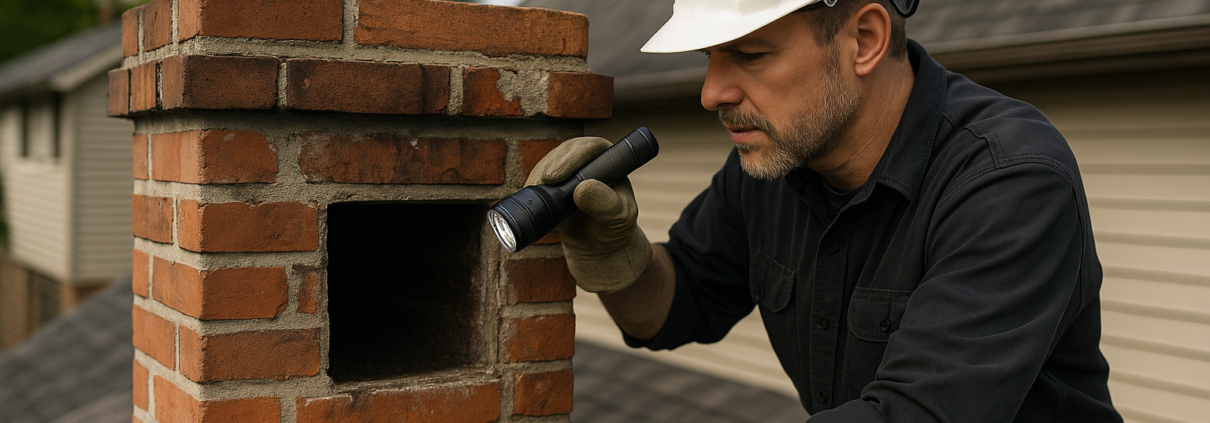

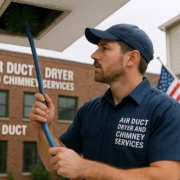
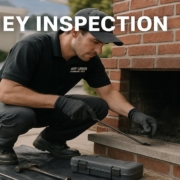

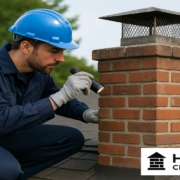
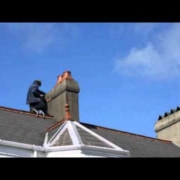
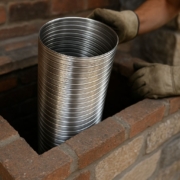


Leave a Reply
Want to join the discussion?Feel free to contribute!